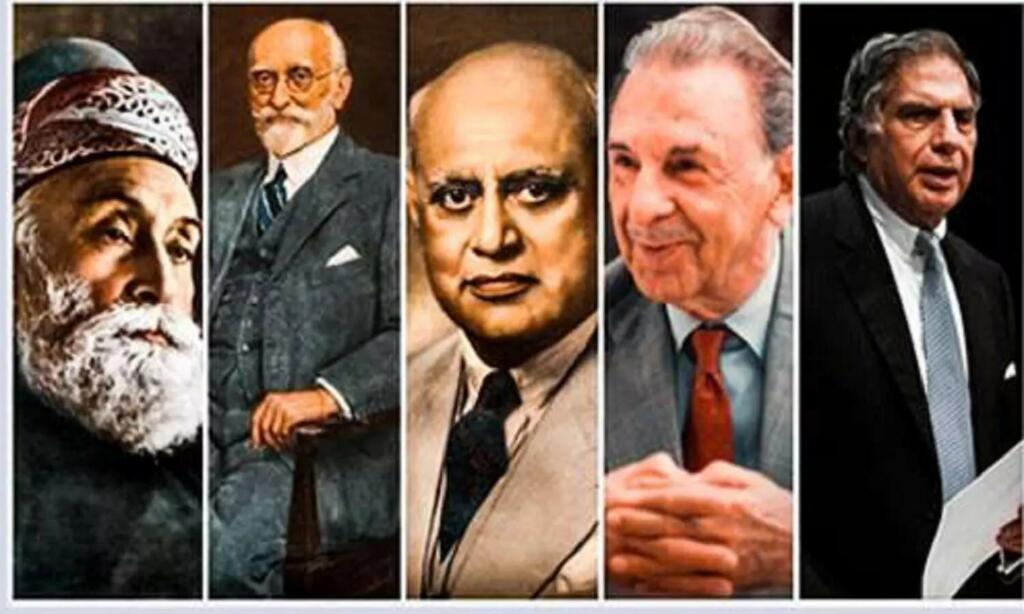Tata family tree: Short biography of TATA’s
The contribution made by the Tata group and the Tata family in making India today’s India is something hardly anyone else has done and will do in the future. Here in this article, we are going to talk about Tata family tree and short biography of Ratan Tata’s Ancestors.
Not only Ratan Tata but also his ancestors (Ratan Tata’s Ancestors) have contributed significantly to take India forward in the world.
Jamshed ji Tata
Jamsedji Tata, known as the father of Indian industry, began his entrepreneurial journey with a textile mill in the 1870s. His vision inspired the steel and power industries in India, laid the foundation for technical education in the country, and helped the country leapfrog into the ranks of industrialized nations.
Tata family tree diagram | Source: Social News xyz
Who was Jamsedji Tata?
Jamsedji Tata was the founder of the Tata Group, which currently operates a total of 31 companies in ten industries globally. Former PM of India Jawaharlal Nehru called him the ‘one-man planning commission’ of the industry. Jamsedji Tata was not just a businessman who helped India find its place in the league of industrialized nations. He was a patriot and humanitarian whose ideals and vision shaped an extraordinary business conglomerate. Jamsedji’s philanthropic principles were rooted in the belief that India needed to use its best minds to lift itself out of poverty.
Donations and handouts weren’t his way, so he set up the JN Tata Endowment in 1892, Tata’s first benevolence in the field of education, and probably the first of its kind in the world. The founder of the Tata group, Jamshedji Nasrwanji Tata, invested in India’s youth and the future of a post-colonial nation when he established the JN Tata Endowment for the higher education of Indians.
The first philanthropic initiative of the Tata family enabled Indian students to pursue higher studies outside the country, regardless of caste or creed. It was established in 1892, the JN Tata Endowment has supported generation after generation of promising minds in the country.
Sir Dorabji Tata
Sir Dorabji Tata was the son of Jamsetji Tata, the founder of the Tata Group. Sir Dorabji Tata not only inherited his father’s business acumen, but also his selflessness and spirit of giving back to the society. On May 27, 1909, Sir Dorabji Tata founded the Indian Institute of Science, Bangalore, and donated to the Institute in 1912.
A handsome donation to the University of Cambridge and the formation of an Institute for Sanskrit Studies at Bhandarkar Oriental Research, Pune is some of his other notable contributions.
Sir Dorabji Tata’s love for sports is reflected in his philanthropic activities. He started the Indian Olympic Movement 100 years ago. In 1919, he facilitated the participation of four athletes and two wrestlers in the Antwerp Games. As President of the Indian Olympic Council, he financed the Indian contingent at the 1924 Paris Olympiad.
JRD Tata
JRD Tata was the first licensed pilot of India. Indian industrialist JRD Tata, widely regarded as the father of Indian civil aviation and the founder of Tata Airlines, became the first person in India to obtain a commercial pilot’s license in 1929 with the no.
Industrialist and Bharat Ratna J.R.D. Tata (1904–1993) was issued a pilot’s license on 10 February 1929 by the Aero Club of India on behalf of the Fédération Aéronautique Internationale. The founder of Tata Airlines, he had the distinction of operating the first commercial flight in a single-seater DH Puss Moth from Karachi (now in Pakistan) to Mumbai on 15 October 1932.
Also Read: Tata Memorial Centre’s revolutionary invention in breast cancer cure at just 70 rupees
Ratan Tata
With the acquisition of Tetley by Tata Tea in 2000, Tata acquired 36 companies in just 9 years in a buying spree. Among them, by far the most notable and possibly controversial was the acquisition of Tetley by Tata Tea.
Anglo-Dutch steelmaker Corus was bought by Tata Steel and British automobile marques Jaguar and Land Rover were now part of its group by Tata Motors.
Ratan Tata not only carried forward his business by following the path of his forefathers, but also contributed significantly to the progress of the country in the way shown by him.
Follow our google news publication for more news and daily updates: @tfipost
